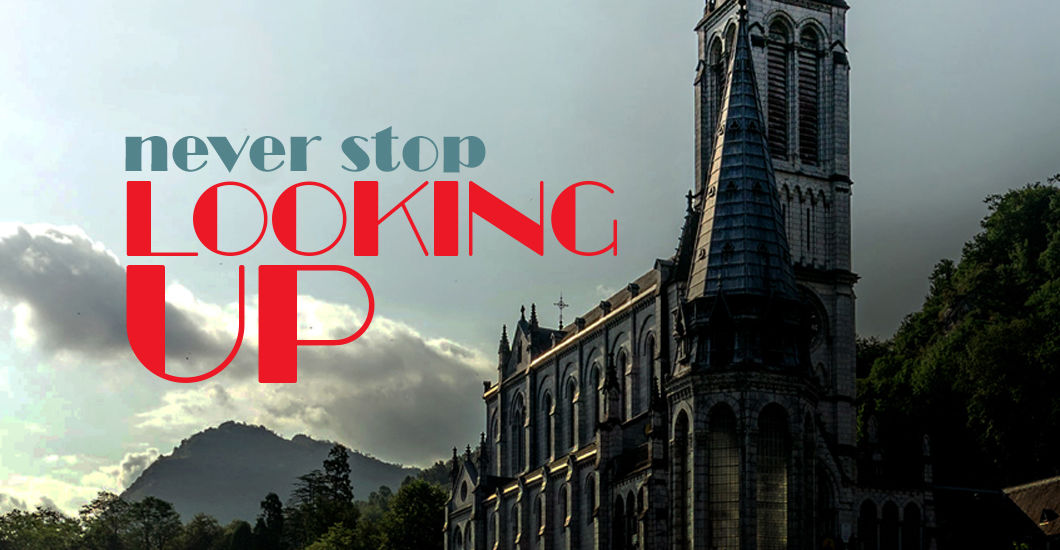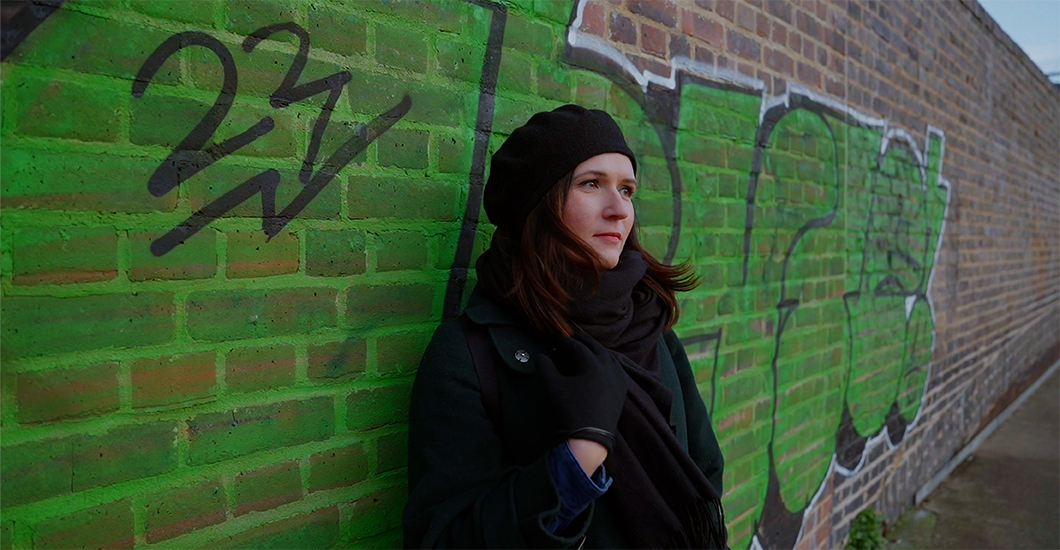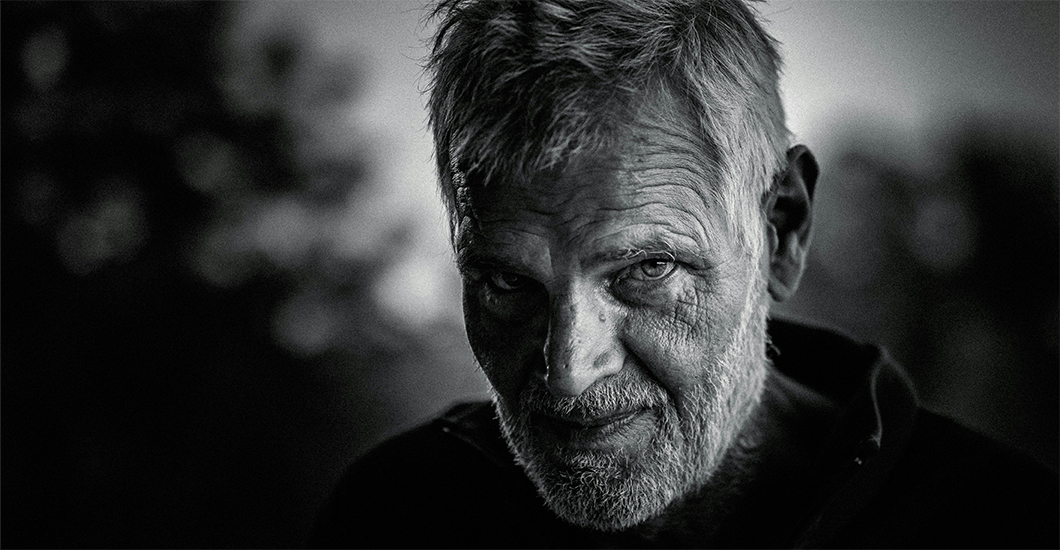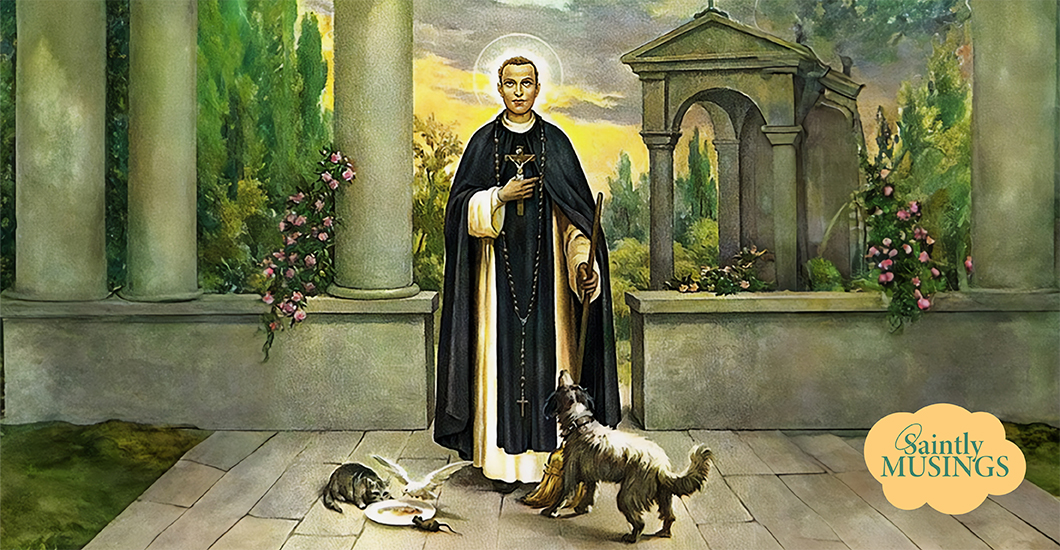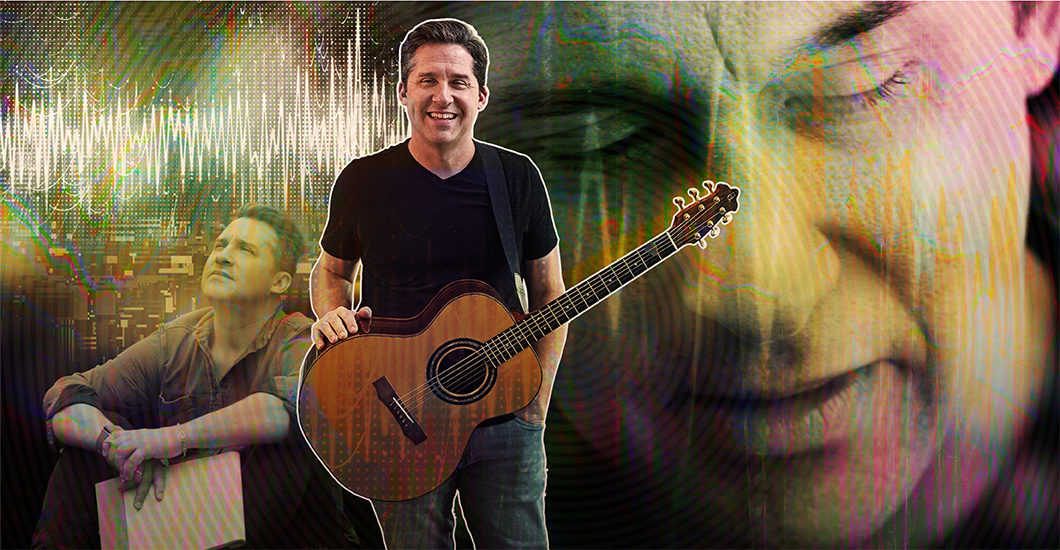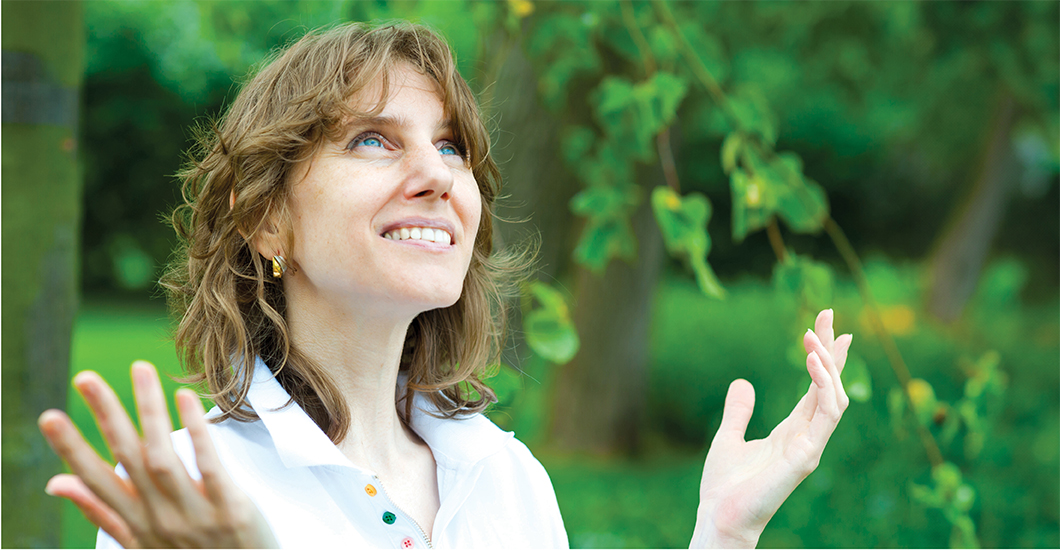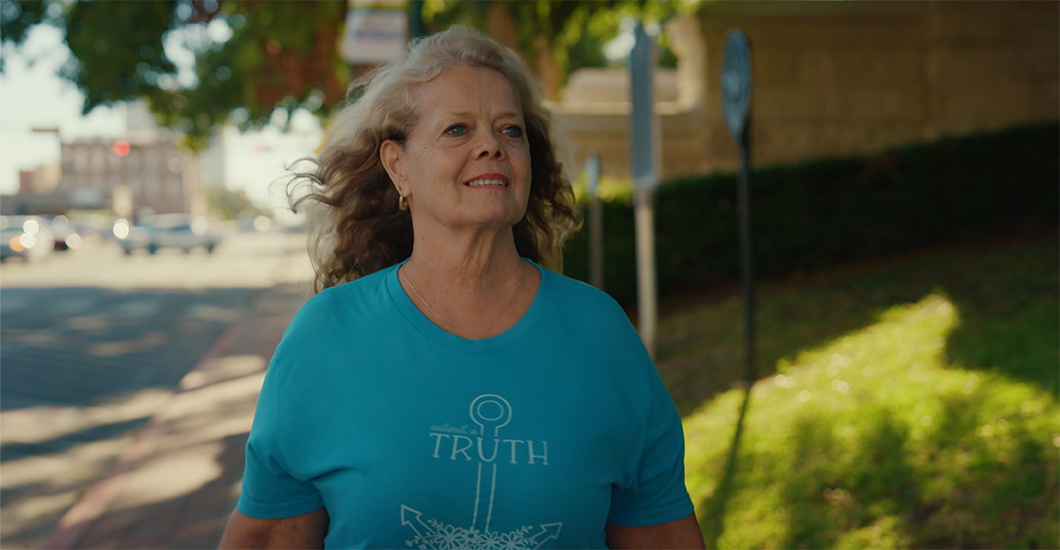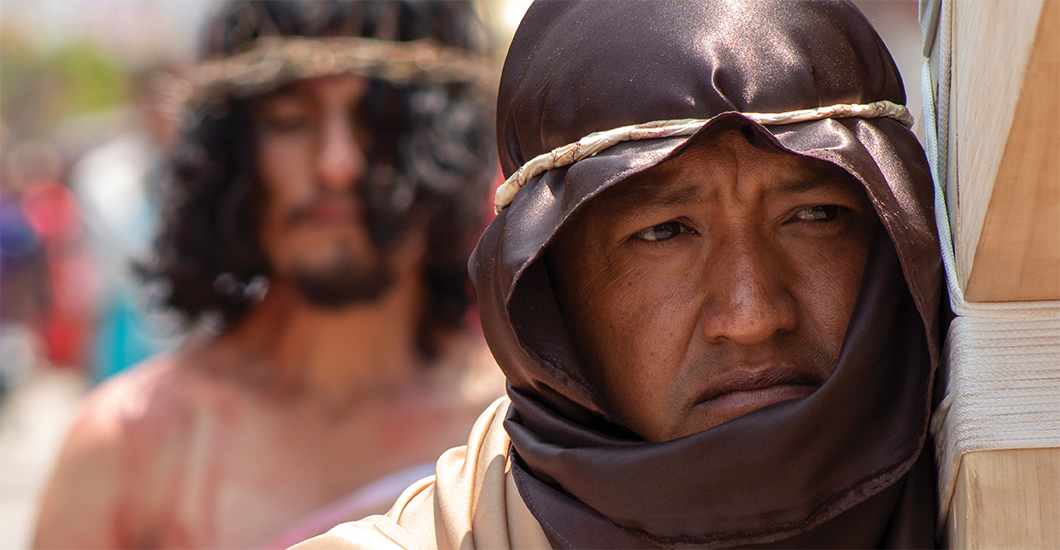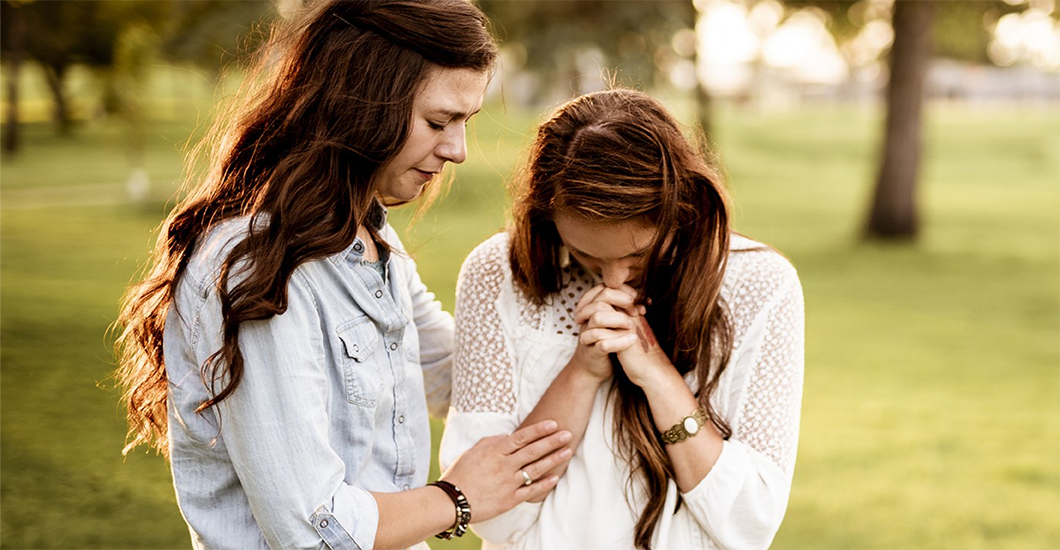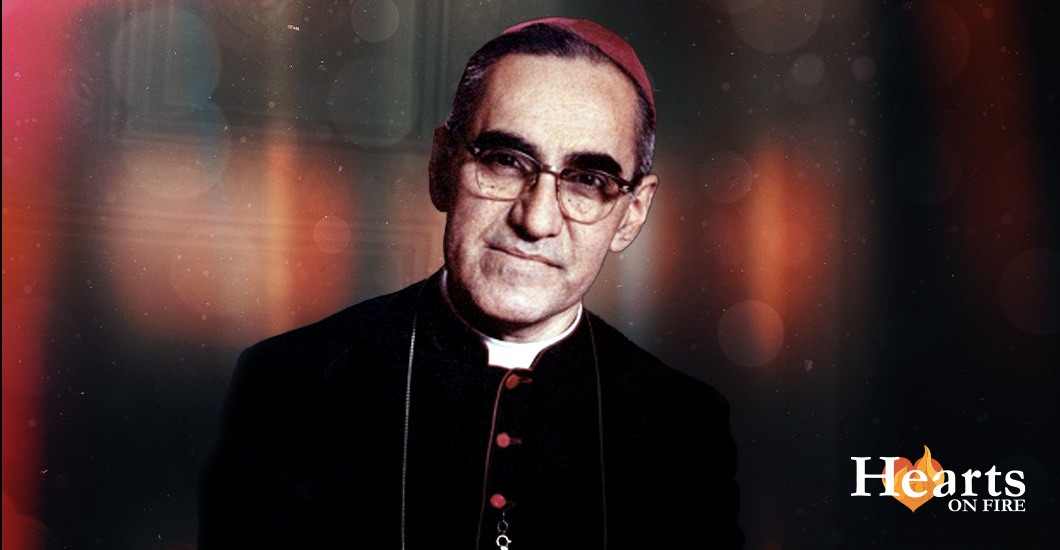Trending Articles
Never Stop Looking Up
In a debilitating condition for nearly nine years, JULIANA ELARDE struggled to find meaning in the pain and suffering, until a pilgrimage to Lourdes changed her life!
It was a day like any other when Juliana stepped into the elevator. She felt healthy, strong and independent, but her life was about to change forever. Stabbing pain suddenly radiated across her lower back and darted down her right leg. She collapsed onto the floor in agony. Despite tests and treatments, her condition continued to deteriorate until she was completely debilitated. Doctors could give it a name—Complex Regional Pain Syndrome—but around fifty medical specialists in eight and a half years could offer no effective treatment or pain relief and certainly no hope for a cure. Again and again, she tried complicated, expensive treatments in the hope that something would make a difference, but to no avail.
Excruciating Pain
She felt hopeless and helpless. From the knee down to the toes, her right leg was grossly swollen, turning purple from lack of circulation as gangrene threatened. Her toes were twisted and purple while a painful, open sore oozed for years without healing. The constant load on her arms from the walking frame resulted in carpal tunnel syndrome which sent pain shooting through her wrists, making it hard to do the smallest things for herself. Even taking a shower was excruciatingly painful. The water felt like nails piercing through the leg and the slightest abrasion felt like a knife scraping through the skin.
Every night, Juliana lay awake in such excruciating pain those 2 hours of uneasy dozing was all she could hope for. “I thought my life had ended. My independence had been taken away. I was so angry with God. I blamed him and I could see no meaning in this pain—emotionally, spiritually, physically—I was a complete mess.”
World of Happiness
Even though Juliana had been brought up in a devout Croatian Catholic family who prayed the Rosary every night, she had abandoned the practice of her faith when she was only 19, occasionally turning up for Easter and Christmas Masses. She had wanted to be in charge of her own life, so she didn’t want God in it. But the more she had sought happiness out in the world, the lonelier and more unsettled she had become. She did not understand the concept of offering up her suffering to Jesus, as someone had advised after her malady began. However, when she was given a prayer card, she started praying the Divine Mercy Chaplet. “Although I had no feeling in my heart, I felt compelled to do it.”
Since Juliana had no devotion to Mary, she was surprised when a friend suggested that she could also ask Mary to intercede for her. A pilgrimage to Lourdes was even recommended in the hope of receiving a miraculous cure. “If Jesus wants to heal you, He can.” Juliana felt like a hypocrite. How could she ask Mary to help her when she had no devotion to her and even feared Mary? But she decided that she had nothing to lose, so humbly started to ask Mary to pray for her.
Peace Like a River
Not knowing anything about its significance, she attended a special Mass on Divine Mercy Sunday. On that day, she made a General Confession of all the sins she could recall over her whole life. Everything changed spiritually for her from then on. She started praying for an hour, three times a day and fulfilled a promise to spend a Holy Hour before the Blessed Sacrament every Monday from 4 to 5pm. Her seven-year-old daughter loved spending that time there with her.
Once she understood the meaning of her pain and suffering and united them to Our Lord in His Divine Mercy, she was able to surrender her will to God’s Will, and trust in His great plan for her life. She learned to deal with pain and suffering by praising and thanking God every moment of the day. He knew when the perfect time to travel to Lourdes would come, so she was at peace.
With the help of her mother and her daughter, Juliana was finally able to join Harvest Pilgrimages on their journey to Lourdes in 2008 for the 150th anniversary of Our Lady’s visions to Saint Bernadette. Paul, the leader of the group was very helpful to her and she felt encouraged by the strength of his devotion to Our Lady.
Waiting for her turn at the baths, Juliana felt very nervous. Since she had been told that the water was freezing cold, she feared it would cause spasms and increase her pain. Before she stepped into the bath, she gazed at a statue of Mary and requested her to warm up the water. To her delighted surprise, when the attendants gently lowered her into the water, it was completely warm. She was overcome with emotion that this simple prayer had been answered so completely, but more was to come.
When they returned her to the wheelchair, Juliana’s daughter noticed with excitement that the dark purple skin on her toes was fading. They were turning pinker. As they wheeled her out of the cubicle, she felt a sensation like cool, flowing water passing over the top of her foot. She kept asking her mother and daughter if her foot was wet, but it wasn’t. The pain in her wrists had also disappeared.
The next day, she went to the Procession of the Blessed Sacrament and Benediction in the underground basilica. As she waited in her wheelchair in the front row, gazing at Jesus in the Blessed Sacrament, she asked Him, “If it’s Your Holy Will, could you please heal me spiritually, as well as physically, so that I can be a mother to my child in the way I’ve always wanted to be.”
When the priest lifted the monstrance in Benediction, she felt a tremendous jolt from her waist down to her toes in both legs. It felt like she was being electrocuted. Such intense pain, on top of her usual agony, made her want to scream, but she gripped the arms of the wheelchair tightly and held the suffering deep inside. As the priest placed Jesus on the altar and began the Divine Praises, the pain started disappearing, from her waist down to her legs, section by section.
Mystical Moment
At that moment, she knew that something had taken place, but what? She was still in pain, but her right leg felt very light. She felt in her heart that Jesus was calling her to go to the Grotto right away, so that she could pray the Rosary in the place where Mary had appeared to Saint Bernadette.
As they prayed the Rosary at the Grotto, she experienced a very special, mystical moment with Our Lady. Although, the sun was shining on her right she saw a tiny light in the sky ahead of her. She had a deep sense that Mary was behind this light and heard Mary’s voice in her heart saying, “Julie don’t worry, everything will be all right. Just trust!”
Immediately Juliana felt deep, tender, motherly love from Mary, and love for Mary spontaneously burst from Juliana’s heart in return. Without judgement or fear, Juliana felt she could really trust Mary. Only then, did the Lord allow the completion of her physical healing.
Her toes, which had been so twisted and mangled, felt like they were being stretched out. She started crying, “My toes, my toes!” When her mother removed her slipper, the toes were wiggling. The pain in her lower back and leg had totally disappeared and she could even touch her leg without wincing, which had been impossible for the last eight and a half years.
“I think I can stand up!” she exclaimed. As Paul and her mother lifted her out of the wheelchair, she rejoiced at being able to stand without any pain at all. “I think I can walk!” she declared, feeling as if she were gliding on a cloud, as she moved toward the beautiful statue marking the spot where Saint Bernadette had seen Our Lady. “Wow! Is this really happening?” she thought, astonished at the lack of the pain which had been her constant companion for eight and a half years. Later, she would realize that the day and hour of her healing was that of her usual Holy Hour before the Blessed Sacrament.
The open wound on her leg, that had failed to heal for several years, closed up a few days later and healed over permanently. Apart from some initial physiotherapy to strengthen the disused muscles, she has needed no further treatment. She has no more symptoms of Complex Regional Pain Syndrome—a condition that she had been told was incurable—or any after effects. The purple, mangled toes returned to normal in Lourdes and have been perfect ever since. The carpal tunnel syndrome, which healed immediately after the Lourdes bath, has also not returned. Her doctor still refers to her today as his “miracle patient.”
Most importantly, at Lourdes she experienced her Heavenly Mother’s love, the moment of Mary, as she calls it. She cherished that moment and nurtured the maternal affection Mary had given her by lovingly praying the Rosary every day. To keep Our Lady with her always, she invites Mary to join her in all the activities of her daily life. She asks Mary to use her as Mary’s little instrument and as a result, “I’ve never been happier in my whole life.”
Our Lady has interceded for her to grant even the hopes she had felt were too much to ask for. Crucially, Mary brought her a loving husband to share her life with and be a wonderful stepfather— modelling Saint Joseph—to her daughter as she entered her teenage years. Even better, he shares her love for Jesus in His Divine Mercy and for Mary. She met him on the pilgrimage to Lourdes—Paul, who cared for her so tenderly and was present when she was healed. Juliana and Paul are looking forward to their pending 10th anniversary.
Juliana Elarde ARTICLE is based on Juliana Elarde’s personal testimony, including her interview on the Shalom TV program, Mary my Mother https://www.shalomworld.org/episode/juliana-ellarde
Related Articles
From being a healthy Uni-student to a paraplegic, I refused to be confined to a wheelchair… In the initial years of University, I slipped a disc. Doctors assured me that being young and active, physiotherapy, and exercises could make me better, but despite all effort, I was in pain every day. I had acute episodes every few months, which kept me in bed for weeks and led to repeated hospital visits. Nevertheless, I held on to hope, until I slipped a second disc. That's when I realized my life had changed. Angry at God! I was born in Poland. My mom teaches theology, so I was brought up in the Catholic faith. Even when I moved to Scotland for University and then to England, I held onto it dearly, maybe not in a do-or-die manner, but it was always there. The initial phase of moving to a new country wasn’t easy. My home had been a furnace, with my parents fighting among themselves most of the time, so I had practically run away to this alien land. Leaving my difficult childhood behind, I wanted to enjoy my youth. Now, this pain was making it difficult for me to hold down jobs and keep myself financially balanced. I was angry at God. Yet, He wasn’t willing to let me go. Trapped at home in acute pain, I resorted to the only available pastime—my mother’s collection of religious books. Slowly, the retreats I attended and the books I read led me to realize that despite my distrust, God really wanted my relationship with Him to be strengthened. But I was also not totally over the anger that He wasn’t healing me yet. Eventually, I came to believe God was angry at me and didn’t want to heal me so I thought maybe I could trick him. I started looking for a holy priest with good ‘statistics’ for healing so that I could get healed when God was busy doing other things. Needless to say, that never happened. A Twist in My Journey One similar day in a prayer group, I was in so much pain. Fearing an acute episode, I was planning to leave when one of the members there asked if there was something I would like them to pray for. I was having some trouble at work, so I said yes. As they were praying, one of the men asked if there was some physical illness that I needed praying over. They were way down on my ‘healing rating’ list, so I didn’t trust that I would receive any relief, but I said ‘Yes’ anyway. They prayed and my pain was gone. I returned home, and it was still gone. I started jumping and twisting and moving around, and I was still okay. But nobody believed me when I told them I was healed. So, I stopped telling people; instead, I went to Medjugorje to thank Our Lady. There, I had an encounter with a man who was doing Reiki and wanted to pray over me. I refused, but before leaving he gave me a goodbye hug which left me worried because I recalled his words that his touch has power. I allowed fear to take over and falsely believed this evil’s touch was stronger than God. I woke up the next morning in excruciating pain, unable to walk. After four months of relief, my pain returned so acutely that I thought I wouldn’t even be able to make it back to the UK. When I returned, I found that my discs were touching the nerves, causing even more drastic pain for months. After six or seven months, the doctors decided that they needed to do the risky procedure on my spine that they had been keeping off for a long time. The surgery damaged a nerve in my leg, and my left leg was paralyzed knee-down. A new journey began there and then, a different one. I Know You Can Do it The very first time I arrived home in a wheelchair, my parents were terrified, but I was filled with joy. I loved all the technological stuff…every single time someone pressed a button on my wheelchair, I was excited like a kid. It was over the Christmas period, when my paralysis started regressing that I realized the extent of damage to my nerves. I was admitted to a hospital in Poland for a while. I didn't know how I was going to live. I was just praying to God that I needed another healing: “I need to find you again because I know you can do it.” So, I found a healing service and was convinced that I would be healed. A Moment You Don’t Wanna Miss It was Saturday and my father had initially not wanted to go. I just told him: “You don't want to miss out when your daughter is healed.” The original schedule had a Mass, followed by the healing service with Adoration. But when we arrived, the priest said they had to change the plan as the team that was meant to lead the healing service was not there. I remember thinking I don’t need any team: “I only need Jesus.” When the Mass started, I did not hear a single word. We were sitting on the side where there was a Divine Mercy picture. I looked at Jesus like I had never seen Him before. It was a stunning image. He looked so beautiful! I never saw that picture anywhere after that. All through Mass, the Holy Spirit was enveloping my soul. I was simply saying in my head ‘Thank you’ even though I didn’t know what I was thankful for. I wasn’t able to ask for healing, and it was frustrating because I needed healing. When adoration started I asked my mom to take me to the front, as close to Jesus as possible. There, seated up front, I felt someone touching, and massaging my back. I was getting so warm and cozy that I felt like I would fall asleep. So, I decided to walk back to the bench, forgetting that I could not ‘walk.’ I just walked back and my mom ran after me with my crutches, praising God, saying: “You are walking, you are walking.” I was healed, by Jesus in the Blessed Sacrament. As soon as I sat down, I heard a voice saying: “Your faith has healed you.” In my mind, I saw the image of the woman touching the cloak of Jesus when He was passing. Her story reminds me of mine. Nothing was helping until I reached this point where I started trusting Jesus. The healing came when I accepted Him and told Him: “You are all I need.” My left leg had lost all its muscles and even that grew back overnight. It was very significant because the doctors were measuring it before, and they found an astounding, unexplainable change. Shouting it Out This time around when I received the healing, I wanted to share it with everyone. I wasn't embarrassed anymore. I wanted everyone to know how amazing God is and how much He loves all of us. I'm no one special and I haven't done anything special to receive this healing. Being healed also doesn't mean that my life became super-comfortable overnight. There are still difficulties, but they are much lighter. I take them to the Eucharistic Adoration and He gives me solutions, or ideas on how I can deal with them, as well as the assurance and trust that He will deal with them.
By: Ania Graglewska
MoreWhat would you do when a stranger knocks at your door? What if the stranger turns out to be a difficult person? He says his name with emphasis, in Spanish, with a certain pride and dignity, so you’ll remember who he is—Jose Luis Sandoval Castro. He ended up on our doorstep at Saint Edward Catholic Church in Stockton, California, on a Sunday evening when we were celebrating our patron feast day. Somebody had dropped him off in our relatively poor, working-class neighborhood. The music and the crowd of people apparently drew him like a magnet to our parish grounds. Unveiling the Truth He was a man of mysterious origins—we did not know how he arrived at the church, let alone who and where his family was. What we did know was that he was 76 years old, bespectacled, dressed in a light-colored, well-worn vest, and was pulling his luggage by hand. He carried a document from the Immigration and Naturalization Service granting him permission to enter the country from Mexico. He had been robbed of his personal documents and carried no other identification with him. We set about exploring and discovering who Jose Luis was, his roots, his relatives, and whether they had any contact with him. He hailed from the town of Los Mochis in the state of Sinaloa, Mexico. Anger, vitriol, and venom spewed from his mouth. He claimed that his relatives had ripped him off and robbed him of his pension in the United States, where he had worked for years, as he went back and forth to Mexico. The relatives we contacted claimed they tried to help him on various occasions, yet he called them thieves. Who were we to believe? All we knew was that we had a wandering, regular drifter from Mexico in our hands, and we could not abandon him nor put the old, infirm man out on the street. Coldly, callously, one relative said: “Let him fend for himself on the streets.” He was a man of bluster, bravado, and gruffness, yet he flashed signs of vulnerability again and again. His eyes would water, and he would almost sob as he told how people had wronged and betrayed him. It seemed like he was all alone, deserted by others. The truth was—it was not easy to help him. He was ornery, stubborn, and proud. The oatmeal was either too chewy or not smooth enough, the coffee was too bitter and not sweet enough. He found fault with everything. He was a man with a gigantic chip on his shoulders, angry and disappointed with life. “People are bad and mean, they’ll hurt you,” he lamented. To that, I retorted that there were ‘Buena gente’ (good people) too. He was in the arena of the world where good and evil intersect, where people of goodness and kindness mixed together, like the wheat and chaff of the Gospel. More than a Welcome No matter his defects, no matter his attitude or his past, we knew we should welcome him and help him as one of the least of the brothers and sisters of Jesus. “When you welcomed the stranger, you welcomed me.” We were ministering to Jesus himself, opening the doors of hospitality to him. Lalo Lopez, one of our parishioners who took him in for a night, introduced him to his family, and took him to his son’s baseball game, observed: “God is testing us to see how good and obedient we are, as His children.” For several days, we put him up in the rectory. He was weak, spitting out phlegm every morning. It was obvious he could no longer roam and drift freely as he was accustomed to doing in his younger days. He had high blood pressure, over 200. On one visit to Stockton, he said he was hit behind the neck near a downtown church. A son in Culiacan, Mexico, said he “engendered me” and that he never really knew him as his dad, for he was never around, always traveling, heading for El Norte. The story of his life began to unfold. He had worked in the fields, harvesting cherries, many years ago. He had also sold ice cream in front of a local church a few years ago. He was, to quote the Bob Dylan classic song, “like one with no direction home, like a complete unknown, like a rolling stone.” As Jesus left the 99 sheep behind to rescue one stray sheep, we turned our attention to this one man, apparently shunned by his own. We welcomed him, housed him, fed him, and befriended him. We came to know his roots and his history, the dignity and sacredness of him as a person, and not just as another throwaway on the streets of the city. His plight was publicized on Facebook by a woman who transmits video messages of missing persons to Mexico. People asked: “How can we help?” One man said: “I’ll pay for his ticket home.” Jose Luis, an illiterate man, rough and unrefined, came to our parish fiesta, and by the grace of God, we tried, in some small way, to emulate the example of Saint Mother Teresa, who welcomed the poor, the lame, the sick, and the outcasts of the world into her circle of love, the banquet of life. In the words of Saint John Paul II, solidarity with others is not a feeling of vague compassion or shallow distress at the misfortunes of others. It is a reminder that we commit to the good of all because we are all responsible for one another.
By: Father Alvaro Delgado
MoreMy husband was given a death sentence; I did not want to live on without him, but his firm convictions surprised me. Five years ago, my world came crashing down when my husband was diagnosed with a terminal disease. The life and the future I envisioned were forever changed in an instant. It was terrifying and confusing; the most hopeless and helpless I’ve ever felt. It was as though I had been plunged into an abyss of constant fear and despair. I had only my faith to cling onto as I faced the darkest days I’ve ever known. Days of caring for my dying husband and days of preparing to face a life completely different than what I had planned. Chris and I had been together since we were teenagers. We were best friends and nearly inseparable. We had been married for over twenty years and were happily raising our four children in what seemed like an idyllic life. Now he was given a death sentence, and I didn’t know how I could live without him. In truth, part of me didn’t want to. One day, in a moment of brokenness, I confided in him that I thought I might die of a broken heart if I had to live without him. His reaction was not as desperate. He sternly but empathetically told me that I had to keep living until God called me home; that I couldn’t wish or waste my life away because his was coming to an end. He confidently assured me that he would be watching over me and our children from the other side of the veil. The Other Side of Grief Chris had an unshakeable faith in God’s love and mercy. Convinced that we wouldn’t be separated forever, he would often recite the phrase: “It’s just for a little while.” This was our constant reminder that no heartache lasts forever—and these words gave me boundless hope. Hope that God will guide us through this, and hope that I will be reunited with Chris in the next life. During these dark days, we clung to Our Lady in the Rosary—a devotion we were already familiar with. The Sorrowful Mysteries were recited more often than not because contemplating the suffering and death of Our Lord brought us closer to Him in our own suffering. The Divine Mercy Chaplet was a new devotion that we added to our daily routine. Like the Rosary, this was a humbling reminder of what Jesus willingly endured for our salvation, and somehow it made the cross we had been given seem less heavy. We began to more clearly see the beauty in suffering and sacrifice. I would mentally repeat the small prayer: “Oh, Most Sacred Heart of Jesus, I place all my trust in You” every hour of the day. It would bring a wave of calm over me whenever I felt a rush of uncertainty or fear. During this time, our prayer life deepened tremendously and gave us hope that Our Lord would be merciful to Chris and our family as we endured this painful journey. Today, it gives me hope that Chris is at peace, watching over and interceding for us from the other side—just as he promised. In these uncertain days of my new life, it’s hope that keeps me going and gives me strength. It has given me immeasurable gratitude for God’s endless love and tender mercy. Hope is a tremendous gift; an inextinguishable interior glow to focus on when we feel broken. Hope calms, hope strengthens, and hope heals. Hope takes courage to hold onto. As Saint John Paul II said: “I plead with you! Never, ever give up on hope. Never doubt, never tire and never become discouraged. Be not afraid.”
By: Mary Therese Emmons
MoreMartin de Porres was born in 16th-century Peru; he grew up facing the stigmas of both his mixed race and illegitimacy. After a barber-medical apprenticeship in his young years, he joined the Dominicans as a ‘lay helper’ and continued his barber work in the monastery. One day, Brother Francis Velasco Carabantes approached Martin, desiring to talk to this man whom people were already starting to believe was saintly. Martin was busy with his barber work; he absent-mindedly grabbed this novice and placed him in the barber’s chair. Brother Francis had no inclination to have his head shaved; he disliked the hairstyle that the Dominicans used. Before he could resist, Martin had finished his job, and Brother Francis was angry beyond expression. He started to shout, calling Martin all sorts of curse words. Martin was lost in prayer, and by the time he noticed that this novice was shouting, one of the rectors had seen the commotion and was scolding Brother Francis, who was severely punished and sent away. Martin, once he came to realize what had happened, went to the rector with all possible excuses. He begged forgiveness for this person who had verbally abused him, trying even to explain away the curse words used. Finally, he told the rector: “Everyone knows what a sinner I am.” The rector, who was aware of Martin’s saintly life, gave in to his request and forgave Brother Francis. Not satisfied with this, Brother Martin even sent fresh fruit, which was a rare delicacy in the monastery, to Brother Francis. How many times have we rejoiced in the ‘just’ punishments that our transgressors received? Let us pray to Saint Martin for the virtue of humility, to forgive and show the other cheek, as Jesus taught us to do.
By: Shalom Tidings
MoreWhen a terrible loss led Josh Blakesley into the light, music from his soul became a balm to many bleeding hearts. Growing up in the small town of Alexandria, Josh was a carefree child. He grew up listening to his Dad’s music; two elder sisters with a great music collection was a bonus that nurtured his musical taste. Without professional training or theoretical inputs, in an age with no internet and YouTube, Josh had what he would later call ‘a side entry’ into the world of music. Starting on the drums and simultaneously learning to sing, he was enamored by the likes of Don Henley and Phil Collins, following their legendary works through magazines and books. With his mother, though, Church was a non-negotiable matter. Thanks to her insistence, he went to Mass every Sunday. But he would leave God there and live the rest of his life on a totally different plane. Diving Deeper They met in Spanish class when he was 15, and unlike any other 15-year-old, she took him along to a prayer meeting. This was new and different from anything he had experienced before. Teenagers his age were coming together to worship the Lord. This worship experience was modern and engaging…with music, talks, and skits by people his age! He was intrigued, but he wouldn’t have kept coming back every week if Jenny hadn’t asked him to. Several months later, Jenny was hit by a drunk driver and killed in an accident. Her loss was a huge blow to the entire community. As he struggled with the grief of losing her, it triggered a realization that life here is finite, and there must be purpose in it, a reason that we are living. From that very moment, he began a journey, searching for answers to the questions that fascinated him…‘What is the reason for me? What is the purpose of what I’m doing right now? Why has God put me on this planet? What’s my role while I’m here?’ He started diving more into why we were here on this planet. In realizing that his gifts were from God, and in searching for a purpose in the use of these gifts, he realized that he wanted to give back to God and return the love. A Bolt of Realization He started playing music for Mass and getting involved in the liturgy. As he puts it: “There has been a faith part to my music and a music part to my faith as well. Those are still ingrained. I pray through music a lot”. And it is this experience of prayer that he tries to hand over to his brethren through writing and playing music. The “awesome and overwhelming” experience of leading people into worship and hearing them singing along makes him whisper so often: “The Lord is moving right now, and I don’t have to work.” Bridging the Gap Josh is now a full-time singer, songwriter, producer, music director, husband, and dad. Even while leading the music at Mass every Sunday, Josh knows that Mass can happen without music—what a musician does at Mass doesn’t bring Jesus any greater into the room; He is there regardless. What a musician can do is “elevate the worship of the faithful by bringing some extra beauty through music.” This indeed, is one of his life goals—to try and bridge that gap and bring quality music into the liturgy. But he doesn’t stop there; in addition to adding beauty to the Sacramental experience, he goes another mile to bring God to the people. Right from His Heart As a Catholic musician, Josh writes songs for the Mass and writes from the heart. Sometimes, when it comes out, it might not be out rightly Mass-material, but what comes out is still a tribute to God for the gift of music. He relates that his song Even in This was such an experience right from his heart. The Church community he was part of had just lost a teen, and seeing them go through the pain, the tragedy, and the devastation took him back to his own experience of losing a dear friend in his teenage years. Diving into the pain, he wrote that even in these darkest nights, God is with us. In the ‘valleys of pain’, in the ‘shattered, broken things’, in the ' hurt you cannot hide’ and the ‘fear you cannot fight’, he reassures his listeners that though you cannot see God, “You are not alone.” This is one message Josh wants to repeat to the world: “God is moving with you.”
By: Josh Blakesley
MoreI remember a time in my ministry when I had felt a fellow minister distancing himself from me for no apparent reason. It seemed like he was struggling, but he wouldn’t share it with me. One Lenten day, burdened by this thought, I stood in my office and cried out to the Lord in my heart: “Jesus, I feel so left out of this person’s life.” Immediately, I heard Jesus respond with these sad words: “I know how you feel. It happens to Me every day.” Wow! I felt my own heart pierced, and tears flooded my eyes. I knew these words were a treasure. I continued for months to unpack that grace. Since my Baptism in the Holy Spirit twenty years ago, I had considered myself to have a deep personal relationship with Jesus. But this Word from my precious Savior and Lord opened a whole new insight into Jesus’ Heart. “Yes, Jesus, so many people forget You, don’t they? And me too—how often am I going about my tasks, forgetting to bring my problems and thoughts to You? All the while, You wait for me to turn back to You, who looks on me with such love.” In my prayer, I kept processing those words. “I know better now how You feel when someone rejects You, accuses or blames You, or does not talk to You for days or even years.” I would more consciously take my own sorrows to Jesus and tell Him: “Jesus, my Beloved, You feel this same sadness that I am feeling. I offer my little hurt to console You for so many people, including myself, who fail to console You.” I saw in a new way my favorite image, Jesus with His Sacred Heart’s rays of love flowing out, lamenting to Saint Margaret Mary: “Look at My Heart that loves people so much—but receives so little love in return.” Truly, Jesus gives me little trials daily so I can have a tiny taste of what He endured for us. I will always remember that moment of agony that brought me closer to the amazing, tender, long-suffering love of our dear Lord Jesus.
By: Sister Jane M. Abeln SMIC
MoreWould my life ever return to normal? How can I possibly continue my work? Brooding over these, a terrible solution popped into my head… I was finding life extremely stressful. In my fifth year at college, the onset of bipolar disorder was hindering my efforts to complete my teaching degree. I had no diagnosis yet, but I was plagued with insomnia, and I looked frazzled and unkempt, which impeded my prospects of employment as a teacher. Since I had strong natural tendencies toward perfectionism, I felt so ashamed and feared that I was letting everyone down. I spiraled into anger, despondency, and depression. People were concerned about my decline and tried to help. I was even sent to the hospital by ambulance from the school, but doctors could find nothing wrong except elevated blood pressure. I prayed but found no consolation. Even Easter Mass—my favorite time—didn’t break the vicious cycle. Why wouldn’t Jesus help me? I felt so angry with Him. Finally, I just stopped praying. As this continued, day after day, month after month, I didn’t know what to do. Would my life ever return to normal? It seemed unlikely. As graduation approached, my fear increased. Teaching is a tough job with few breaks, and the students would need me to remain level-headed while dealing with their many needs and providing a good learning environment. How could I possibly do this in my current state? A terrible solution popped into my head: “You should just kill yourself.” Instead of casting off that thought and sending it straight back to hell where it belonged, I let it sit. It seemed like a simple, logical answer to my dilemma. I just wanted to be numb instead of under constant attack. To my utter regret, I chose despair. But, in what I expected to be my last moments, I thought of my family and the type of person I had once been. In genuine remorse, I raised my head to the heavens and said: “I’m so sorry, Jesus. Sorry for everything. Just give me what I deserve.” I thought those would be the last words I would utter in this life. But God had other plans. Listening to the Divine My mother was, by providence, praying the Divine Mercy Chaplet at that very moment. Suddenly, she heard the words loud and clear in her heart “Go find Ellen.” She obediently set aside her rosary beads and found me on the floor of the garage. She caught on quickly, exclaiming in horror: “What are you doing?!” while she pulled me into the house. My parents were heartbroken. There’s no rulebook for times such as these, but they decided to take me to Mass. I was totally broken, and I needed a Savior more than ever before. I longed for a come-to-Jesus moment, but I was convinced that I was the last person in the world He would ever want to see. I wanted to believe that Jesus is my Shepherd and would come after His lost sheep, but it was hard because nothing had changed. I was still consumed by intense self-hatred, oppressed by darkness. It was almost physically painful. During the preparation of the gifts, I broke down in tears. I had not cried for a really long time, but once I started, I couldn’t stop. I was at the end of my own strength, with no idea where to go next. But as I wept, the weight slowly lifted, and I felt myself enfolded in His Divine Mercy. I didn’t deserve it, but He gave me the gift of Himself, and I knew that He loved me the same at my lowest point as much as He loved me at my highest point. In Pursuit of Love In the days to come, I could barely face God, but He kept showing up and pursuing me in the little things. I re-established communication with Jesus with the aid of a Divine Mercy picture in our living room. I tried to talk, mostly complaining about the struggle and then feeling bad about it in light of the recent rescue. Weirdly, I thought I could hear a tender voice whispering: “Did you really think I would leave you to die? I love you. I will never forsake you. I promise to never leave you. All is forgiven. Trust in my mercy.” I wanted to believe this, but I couldn’t trust that it was true. I was growing discouraged at the walls I was erecting, but I kept chatting with Jesus: “How do I learn to trust You?” The answer surprised me. Where do you go when you feel no hope but have to go on living? When you feel totally unlovable, too proud to accept anything yet desperately wanting to be humble? In other words, where do you want to go when you want a full reconciliation with the Father, Son, and Holy Spirit but are too scared and disbelieving of a loving reception to find your way home? The answer is the Blessed Virgin Mary, Mother of God, and Queen of Heaven. While I was learning to trust, my awkward attempts did not displease Jesus. He was calling me closer, closer to His Sacred Heart, through His Blessed Mother. I fell in love with Him and His faithfulness. I could admit everything to Mary. Although I feared that I could not keep my promise to my earthly mother because, on my own, I was still barely mustering the will to live, my mother inspired me to consecrate my life to Mary, trusting that she would help me get through this. I didn’t know much about what that meant, but 33 Days to Morning Glory and Consoling the Heart of Jesus by Father Michael E. Gaitley, MIC, helped me understand. The Blessed Mother is always willing to be our intercessor, and she will never turn down a request from a child wanting to return to Jesus. As I went through the consecration, I resolved never to attempt suicide again with the words: “No matter what happens, I will not quit.” Meanwhile, I started taking long walks on the beach while I talked with God the Father and meditated on the parable of the prodigal son. I tried to put myself in the shoes of the prodigal son, but it took me some time to get close to God the Father. First, I imagined Him at a distance, then walking toward me. Another day, I pictured Him running towards me even though it made Him look ridiculous to His friends and neighbors. Finally, the day came when I could picture myself in the arms of the Father, then being welcomed not just to His home but to my seat at the family table. As I envisaged Him pulling out a chair for me, I was no longer a headstrong young woman but a 10-year-old girl with ridiculous glasses and a bob haircut. When I accepted the Father’s love for me, I became like a little child again, living in the present moment and trusting Him completely. I fell in love with God and His faithfulness. My Good Shepherd has saved me from the prison of fear and anger, continuing to lead me along the safe path and carrying me when I falter. Now, I want to share my story so that everyone can know God’s goodness and love. His Sacred Heart is welling up with tender love and mercy just for you. He wants to love you lavishly, and I encourage you to welcome Him without fear. He will never abandon you or let you down. Step into His light and come home.
By: Ellen Wilson
MoreThrough the darkest valleys and toughest nights, Belinda heard a voice that kept calling her back. My mother walked out on us when I was around eleven. At the time, I thought that she left because she didn't want me. But in fact, after years of silently suffering through marital abuse, she couldn’t hold on anymore. As much as she wanted to save us, my father had threatened to kill her if she took us with her. It was too much to take in at such a young age, and as I was striving hard to navigate through this difficult time, my father started a cycle of abuse that would haunt me for years to come. Valleys and Hills To numb the pain of my father’s abuse and compensate for the loneliness of my mother’s abandonment, I started resorting to all kinds of ‘relief’ mechanisms. And at a point when I couldn’t stand the abuse anymore, I ran away with Charles, my boyfriend from school. I reconnected with my mother during this time and lived with her and her new husband for a while. At 17, I married Charles. His family had a history of incarceration, and he followed suit soon enough. I kept hanging out with the same bunch of people, and eventually, I, too, fell into crime. At 19, I got sentenced to prison for the first time—five years for aggravated assault. In prison, I felt more alone than I had ever been in my life. Everyone who was supposed to love and nurture me had abandoned me, used me, and abused me. I remember giving up, even trying to end my life. For a long time, I kept on spiraling downwards until I met Sharon and Joyce. They had given their lives to the Lord. Though I had no clue about Jesus, I thought I'd give it a try as I didn't have anything else. There, trapped inside those walls, I started a new life with Christ. Falling, Rising, Learning… About a year and a half into my sentence, I came up for parole. Somehow in my heart, I just knew I was going to make parole because I'd been living for Jesus. I felt like I was doing all the right things, so when the denial came back with a year set off, I just didn't understand. I started questioning God and was quite angry. It was at this time that I was transferred to another correctional facility. At the end of the church services, when the chaplain reached out for a handshake, I flinched and withdrew. He was a Spirit-filled man, and the Holy Spirit had shown him that I had been hurt. The next morning, he asked to see me. There in his office, as he asked about what had happened to me and how I was hurting, I opened up and shared for the first time in my life. Finally, out of prison and in private rehab, I started a job and was slowly getting a hold on my new life when I met Steven. I started going out with him, and we got pregnant. I remember being excited about it. As he wanted to make it right, we got married and started a family. That marked the beginning of probably the worst 17 years of my life, marked by his physical abuse and infidelity and the continuing influence of drugs and crime. He would even go on to hurt our kids, and this once sent me into a rage—I wanted to shoot him. At that moment, I heard these verses: “Vengeance is mine, I will repay.” (Romans 12:19) and “The Lord will fight for you” (Exodus 14:14), and that prompted me to let him go. Never a Criminal I was never able to be a criminal for long; God would just arrest me and try to get me back on track. In spite of His repeated efforts, I wasn't living for Him. I always kept God back, although I knew He was there. After a series of arrests and releases, I finally came home for good in 1996. I got back in touch with the Church and finally started building a true and sincere relationship with Jesus. The Church slowly became my life; I never really had that kind of a relationship with Jesus before. I just couldn't get enough of it because I started to see that it's not the things that I've done but who I am in Christ that's going to keep me on this road. But, the real conversion happened with Bridges to Life*. How can I Not? Even though I hadn’t been a participant in the program as an offender, being able to facilitate in those small groups was a blessing I hadn’t anticipated—one that would change my life in beautiful ways. When I heard other women and men share their stories, something clicked inside of me. It affirmed me that I was not the only one and encouraged me to show up time and again. I would be so tired and worn out from work, but I would walk into the prisons and just be rejuvenated because I knew that that was where I was supposed to be. Bridges to Life is about learning to forgive yourself; not only did helping others help me become whole, it also helped me heal…and I am still healing. First, it was my mother. She had cancer, and I brought her home; I looked after her for as long as she stayed until she passed away peacefully at my home. In 2005, my father’s cancer came back, and the doctors estimated he had at most six months. I brought him home too. Everybody told me not to take in this man after what he did to me. I asked: “how can I not?” Jesus forgave me, and I feel that God would want me to do this. Had I chosen to hold on to the bitterness or hatred toward my parents for the abandonment and the abuse, I don't know if they would have given their lives to the Lord. Just looking back over my life, I see how Jesus kept pursuing me and trying to help me. I was so resistant to feeling what was new, and it was so easy to stay in what was comfortable, but I am grateful to Jesus that I was able to finally completely surrender to Him. He is my Savior, He is my rock, and He is my friend. I just cannot imagine a life without Jesus.
By: Belinda Honey
MoreAre you quick to judge others? Are you hesitant to help someone in need? Then, it’s time to reflect! It was just another day for me. Returning from the market, weary from the day’s labor, collecting Roofus from the Synagogue school… However, something felt different that day. The wind was whispering in my ear, and even the sky was more expressive than usual. Commotion from a crowd in the streets confirmed for me that today, something was going to change. Then, I saw Him—His body so disfigured that I turned Roofus away from this fearful sight. The poor boy gripped my arm with all his might—he was terrified. The way this man, well, what was left of Him, was being handled must mean he had done something terrible. I could not bear to stand and watch, but as I began to leave, I was seized by a Roman soldier. To my horror, they commanded me to help this man to bear His heavy load. I knew this meant trouble. Despite resisting, they asked me to help Him. What a mess! I did not want to associate with a sinner. How humiliating! To carry a cross whilst all of them watched? I knew there was no escape, though, so I asked my neighbor Vanessa to take Roofus home because this trial would take a while. I walked over to Him—filthy, bloody, and disfigured. I wondered what he had done to deserve this. Whatever be it, this punishment was way too cruel. The bystanders were yelling out ‘blasphemer,’ ‘liar,’ and ‘King of the Jews,’ whilst others were spitting at him and abusing him. I had never been so humiliated and mentally tortured like this before. After taking only about ten to fifteen steps with him, he fell to the ground, face first. For this trial to end, he needed to get up, so I bent over to help him up. Then, in his eyes, I saw something that changed me. I saw compassion and love? How could this be? No fear, no anger, no hatred—just love and sympathy. I was taken aback, whilst with those eyes, He looked at me and held my hand to get back up. I could no longer hear or see the people around me. As I held the Cross on my one shoulder and Him on my other, I could only keep looking at Him. I saw the blood, the wounds, the spit, the dirt, everything that could no longer hide the divinity of His face. Now I heard only the beating of His heart and His labored breathing…He was struggling, yet so very, very strong. Amid all the noise of the people screaming, abusing, and scurrying about, I felt as though He was speaking to me. Everything else I had done till that point, good or bad, seemed pointless. When the Roman soldiers pulled Him from me to drag Him to the place of crucifixion, they shoved me aside, and I fell to the ground. He had to continue on His own. I lay there on the ground as people trampled over me. I did not know what to do next. All I knew was that Iife was never going to be the same again. I could no longer hear the crowd but only the silence and the sound of my heart beating. I was reminded of the sound of His tender heart. A few hours later, as I was about to get up to leave, the expressive sky from earlier began to speak. The ground beneath me shook! I looked ahead at the top of Calvary and saw Him, arms stretched and head bowed, for me. I know now that the blood splattered on my garment that day belonged to the Lamb of God, who takes away the sins of the world. He cleansed me with His blood. *** *** *** This is how I imagine Simon of Cyrene recalling his experience of the day he was asked to help Jesus carry the Cross to Calvary. He had probably heard very little of Jesus till that day, but I am very sure that he was not the same person after he helped the Savior carry that Cross. This Lenten season, Simon asks us to look into ourselves: Have we been too quick to judge people? Sometimes, we are too quick to believe what our instincts tell us about somebody. Just like Simon, we may let our judgments come in the way of helping others. Simon saw Jesus being scourged and assumed that He ought to have done something wrong. There might have been times when we let our presumptions about a person come in the way of loving them as Christ called us to. Are we hesitant to help some people? Shouldn’t we see Jesus in others and reach out to help them? Jesus asks us to love not only our friends but also strangers and enemies. Mother Teresa, being the perfect example of loving strangers, showed us how to see the face of Jesus in everyone. Who better to point at for an example of loving enemies than Jesus Christ Himself? He loved those who hated Him and prayed for those who persecuted Him. Like Simon, we may feel hesitant about reaching out to strangers or enemies, but Christ calls us to love our brothers and sisters just as He did. He died for their sins as much as He died for yours. Lord Jesus, thank You for giving us the example of Simon of Cyrene, who became a great witness for following Your Way. Heavenly Father, grant us the grace to become Your witnesses by reaching out to those in need.
By: Mishael Devassy
MoreJudging others is easy, but often enough, we go totally wrong in our judgment about others. I remember an old fellow who used to come to Saturday night Mass. He was much in need of a bath and clean clothes. Quite frankly, he stunk. You can't blame those who didn't want to be subject to this awful smell. He walked two or three miles every day around our little town, picking up trash, and lived in an old, run-down shack all by himself. It is easy for us to judge appearances. Isn't it? I suppose it is a natural part of being human. I don't know how many times my judgments about a person were totally wrong. In fact, it is quite difficult, if not impossible, to look beyond appearances without God's help. This man, for instance, despite his odd personality, was very faithful about participating in Mass every week. One day, I decided I would sit next to him at Mass regularly. Yes, he stunk, but he was also in need of love from others. By God's grace, the stink didn't bother me much. During the sign of peace, I would look him in the eye, smile, and greet him with a sincere: “Peace of Christ be with you.” Never Miss This When I entertain judgments about a person, I miss the opportunity that God wants to give me—an opportunity to see beyond the physical appearance and look into the person's heart. That is what Jesus did to each person He encountered on His journey, and He continues to look beyond our yuck and look at our hearts. I remember a time, being many years away from my Catholic faith, I sat in the Church parking lot, trying to muster enough courage to walk through the doors to attend Mass. I was so afraid that others would judge me and not welcome me back. I asked Jesus to walk in with me. Upon entering the Church, I was greeted by the Deacon, who gave me a big smile and a hug, and said: “Welcome.” That smile and hug were what I needed to feel like I belonged and was home again. Choosing to sit with the old man who stunk was my way of “paying it forward.” I knew how desperately I wanted to feel welcomed, to feel that I belonged and I mattered. Let us not hesitate to welcome each other, especially those who are difficult to be around.
By: Connie Beckman
MoreLatest Articles
It was the year 387, when Monica saw seventeen years of her fervent prayers in tears being answered. She was overwhelmed with joy upon seeing her wayward son Augustine getting baptized by Saint Ambrose in Milan. Soon, they left for Africa, where she fell ill due to the land journey. While in Ostia, Monica announced that she did not want to sail back to North Africa and instead preferred to remain in Ostia until her death. Her sons were surprised to learn their mother’s decision because they were hoping to take her back to her homeland. She told them she wanted them to remember her at the Lord’s altar, wherever they were. Through this statement, Monica made it clear that remembering her at the Mass was way more important than her burial location. When Monica knew she was nearing her death, she revealed to Augustine: “Son, nothing in this world now affords me delight. I do not know what there is now left for me to do or why I am still here, all my hopes in this world being now fulfilled.” A few days later, she fell seriously ill, and her soul breathed the last. Respecting her wishes, Monica was buried in Ostia but soon her body was moved to a hidden crypt in Santa Aurea in the 6th century. Later, Saint Monica’s tomb was transferred to the Basilica of Sant'Agostino in Rome. Monica, the patron Saint of Mothers, truly believed that she would be close to her sons during the celebration of the Holy Eucharist. Her unwavering faith in Christ is a profound example that shows prayer without ceasing and hope without doubting shall bear fruit one day.
By: Shalom Tidings
MoreDo you know how to handle little things that drive you nuts? The other day, I misplaced my car keys when I was in my office building, which is a huge place. It has a large first floor with many side rooms, an enormous basement, and various offices upstairs. There were so many places my keys could have been since I went up and down the stairs all day long. Saying a quick prayer, I retraced my steps, trying to remember where I laid my keys down. After walking around for a while, I suddenly remembered where I might have put them and ran upstairs to one of the offices. Sure enough, there were my car keys. Thank you, Jesus! I find that there is always a lesson lurking in the day's events—if I stop and reflect. Just as parents are alert for and use ‘teaching moments’ to educate their kids, so, too, does God use teaching moments to form us. They are often small grievances, for example, driving all the way to the store and realizing you forgot your wallet. Or worse, getting to the checkout with your cart full of groceries before you realize you don’t have your wallet. Or locking your keys in your car—and worse, seeing that you also locked your cell phone in there! Seeking Fervently… These small events can cause frustration and anger, or we can choose to see them in the light of God's training and disciplining us. If we choose the second option, we can say: “Okay, Lord. I choose to praise You and thank You because Ephesians 5:20 says: ’Giving thanks to God the Father at all times and for everything in the name of our Lord Jesus Christ.’” When we lose our keys and are searching for them, we can say: “Thank You, Lord, for this trial of inconvenience.” As fervently as I am seeking for my keys, I want to fervently be seeking You. “Your face, Lord, do I seek.” (Psalm 27:8) If we can perceive God's loving hand in allowing these things to happen so that they can help train and discipline us, then we can smile and even laugh at daily annoyances. This is something that a priest taught me. Father Jack used to call his guardian angel ‘Laughing Boy’ because of these kinds of little mishaps. If he locked himself out of the car, missed a ride, or couldn't find a paper he needed, Father Jack would say: “Laughing Boy is at it again!” And he would chuckle. Father Jack had learned and taught us an important lesson–don’t take yourself too seriously. The ability to laugh at yourself and at the little grievances of the day helps to keep a smile on your face, and then you will radiate joy to those you meet. Remember, there is always a lesson. Take time to ponder and say: “Okay, God. Here I am. What are You trying to teach me in the events of this day?” Then look at how you responded. Did you learn something and grow in virtue, or did you react badly? Don't worry if you fail. There will be more pop quizzes tomorrow.
By: Ellen Hogarty
MoreLast spring, the enthusiasm I felt about planting a vegetable garden was so great! I couldn’t wait for the right time to put those tiny plants into the dirt. When the time came, I had to decide what to plant. Last year and again this year, I decided to plant vegetables that could be used in preparing a salad. This included lettuce, tomatoes, green onions, radishes, and a variety of peppers. As my garden began giving us a variety of vegetables, my husband and I savored the taste of our fresh salads almost daily throughout the summer. I suppressed the thought of the season-ending and that the last harvest would be soon. It just wouldn’t be the same going to the grocery store and purchasing these very items that God had provided us all summer long. Instead, I decided to be grateful for His blessings. Much to my surprise and delight, the season's last tomato was heart-shaped! My mind drifted to God's love. This is certainly a gift to be shared. I took a few pictures of my gift from God and sent them to my family, simply saying: “Jesus loves you!” One dear friend told me that the tomato resembled the Sacred Heart of Jesus. She added that God can even use a tomato to tell us how much He loves us. I didn't want this beautiful and delicious tomato to spoil, so I eventually used it. As I write this story, I’m still overwhelmed by how much God loves me. Our Lord loves us in big ways, even through the smallest details of our lives, and even by using a heart-shaped tomato! He said: “The Kingdom of God is as if someone would scatter seed on the ground, and would sleep and rise night and day, and the seed would sprout and grow, he does not know how.” (Mark 4-26:27)
By: Carol Osburn
More“Those who surrender to the service of the poor through the love of Christ will live like the grain of wheat that dies,” preached Romero in his last homily. During the time when Oscar Romero was appointed as the Archbishop of San Salvador in 1977, the country was suffering from a severe economic and political crisis. With the death of his friend Father Rutilio Grande by the paramilitaries, the Archbishop became an outspoken critic of the government. The prelate, during his trips abroad, exposed the human rights abuses prevailing in the country. When the military junta seized the country, he began a radio broadcast of his sermons, openly criticizing the government for torture and mass murders. The act gained him the sobriquet, ‘The voice of those without voices.’ In a sermon on 23rd March 1980, the Archbishop implored the soldiers to stop executing government orders and, as Christians, obey God’s orders instead. The next evening, Romero celebrated Mass in a small chapel at Hospital de la Divina Providencia, a Church-run hospital specializing in oncology. After delivering the sermon, as he moved to the center of the altar, a red car stopped before the chapel, and a gunman stepped out of the vehicle, firing two shots at the Archbishop. The bullets went straight through Romero’s heart, and he breathed his last at the altar. His legacy has since inspired Catholics and non-Catholics around the world to stand against human rights abuse and fight for peace and justice. During the canonization of Archbishop Oscar Arnulfo Romero in 2018, Pope Francis wore the same blood-stained belt that Romero wore when he was killed at the altar. The Catholic Church honors this heroic life as the Patron Saint of Persecuted Christians.
By: Shalom Tidings
More